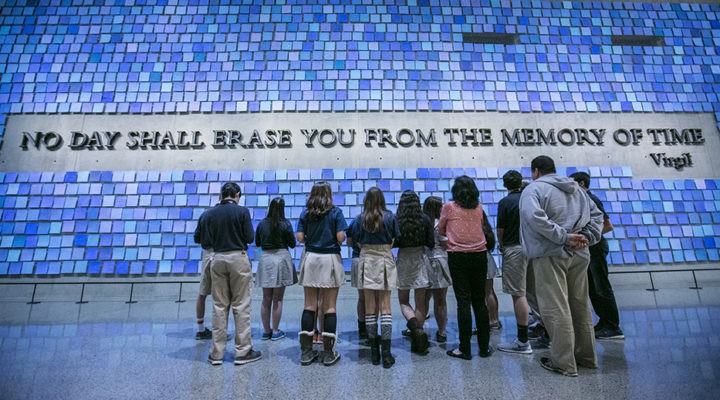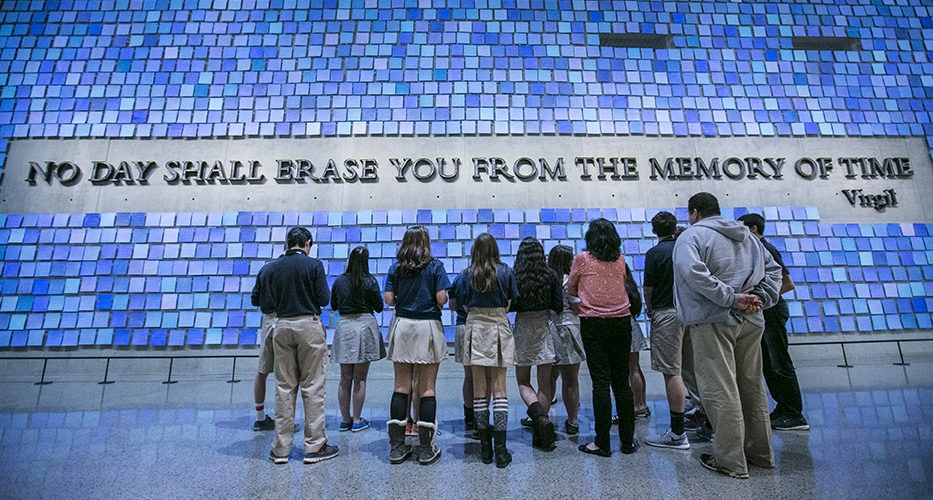Universal education cannot be protected without grassroots movements led by people of faith, a Florida minister said during the inaugural Pastors for Children national conference.
“The pulpit and the people must see it as our duty and divine calling to condemn the privatization and commodification of public education,” said James T. Morris, senior pastor of Carter Tabernacle C.M.E. Church in Orlando.
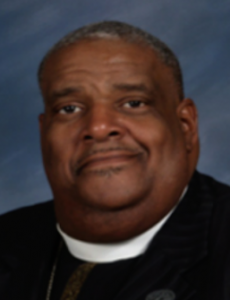
James T. Morris
“We have been ordained to tell the likes of (Florida Gov.) Ron DeSantis that our children have a right to public education regardless of race, creed, economic status or gender identity.”
With chapters in nine states, Pastors for Children is a coalition of clergy-led advocates working to fight ongoing efforts to undermine public education with voucher, charter school and other programs. Its May 6-7 conference in Orlando included presentations by experts on preventing book and curriculum bans, initiating litigation, policy making and advocacy.
But the program’s two keynote speakers, both nationally acclaimed education experts, urged participants to tap into the prophetic dimensions of their faith for the energy and language needed to effectively resist the politicians, billionaires, conservative faith groups and others hostile to universal public education.
“I come to you today to say how completely convinced I am of the importance of your role, that you are able to speak in a language that will inspire those of us who lack that stirring terminology to really rise to the occasion,” said Jennifer Berkshire, co-author of A Wolf at the Schoolhouse Door and The Education Wars, due for release July 2.
She pressed clergy and others present to consider how difficult it has been for them “to venture into the weeds” to counter the catchy rhetoric used by voucher advocates to build animosity toward public schools.
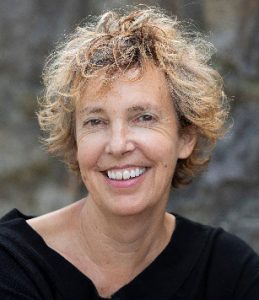
Jennifer Berkshire
“Think about the slogan ‘fund students, not systems.’ You are automatically put in the position of having to defend the system. You are in the weeds. You are having to talk about the intricacies of school funding and the structure of public education. You find yourselves having to speak up on behalf of a bureaucracy that may not make sense and may not even be particularly effective.”
It’s a challenge that has dogged generations of social justice and education advocates, including those who championed child labor laws in the early 19th century, she said.
Popular slogans also were employed then, as were organizational titles such as Farmers and Parents Standing Together Against Federal Overreach. Then as now, the rhetoric was designed to mask the powerful industry and political interests keen to keep children in factories and on farms.
While reforms were achieved in statehouses and federal laws, the campaign for a constitutional amendment banning child labor was more heavily resisted, she added.
“The industrialists, many whom liked the idea of paying kids less, saw there was a lot of concern out there that this might represent a step too far by empowering the federal government to peer into the private business of families. They relied on a lot of misinformation, and before you knew it, they had managed to stir up enough distrust and resentment that we do not have a ban in our U.S. Constitution against child labor.”
But if the challenges were the same during that era, so was the effectiveness of religious leaders in opposing it, like Episcopal priest Edgar Gardner Murphy, she said. “He was a faithful voice for public education and he was really one of the foremost crusaders against child labor. He understood in his bones that the fight to eliminate child labor, and the fight to make public education universal, were the same fight.”
“In a number of the same states that are now in the throes of privatizing their public education systems, they are also rolling back child labor protections.”
Another example of how little has changed, Berkshire added: “In a number of the same states that are now in the throes of privatizing their public education systems, they are also rolling back child labor protections.”
As Murphy did, Pastors for Children can bring a moral voice to the struggle capable of cutting through the hype associated with school privatization efforts, she urged. “The water we swim in is the water of individual choice, and school is just another consumer good, which makes it virtually impossible for advocates for public education to make the kind of stirring case that was once made against something like child labor.”
And it takes a prophetic imagination to muster the fortitude needed to expose the worldview of those intent on keeping children uneducated and at work, she said.
“When they looked out at the world, they believed inequality was our natural state, that there was a hierarchy and that any effort to interrupt that went against the natural order of things. And they didn’t like public education for precisely that reason.”
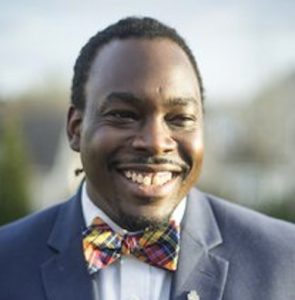
James E. Ford
The perceived threat to social order is the through-line permeating U.S. racial and educational history, said James Ford, executive director of the Center for Racial Equity in Education and a former North Carolina teacher of the year.
“Folks who are in power are clear about what access to education does to the social order, because that same spirit is what’s present in our modern context today,” he said.
That fear emerged from the 12-year reconstruction period after the Civil War. It was a time of remarkable equality for freed slaves, some of whom were elected to statehouses and Congress and were able to pass laws mandating universal education, he explained.
“Many, including myself, did not know that public education today is a feature of this period. Prior to then, you did not have universal, compulsory, tax-supported schools. You had a smattering of private tutors and schools that the land-owning class had access to. That was a revolutionary concept because it begins to even the playing field.”
But reconstruction was followed by a backlash in which white supremacists seized control of governments and began to segregate schools, Ford said. “And it wasn’t just that they segregated them, it’s that they underfunded the Black schools.”
Groups like the United Daughters of the Confederacy pressured school boards to change the way schools taught about slavery and to promote the Southern myth of the Lost Cause.
Resistance to the 1954 Brown v. Board of Education Supreme Court ruling followed a similar pattern, with some Southern states actively “trying to find ways to undermine the notion of living up to the pluralistic, democratic ideals of the United States, and began trying to tear down the very institution of public education,” he said.
North Carolina adopted a plan that enabled white residents opposed to desegregation to use their education dollars to private schools, Ford explained. “It is the predecessor we now know as school vouchers or opportunity scholarships — the taking of public funds to private institutions so that the pupils don’t have to go to school with undesirables.”
In other words, Ford said, the “playbook” for undermining universal public education has not changed. “The reason is education, in and of itself, is radicalizing. It’s the act of moving someone out of the darkness of ignorance and into the light of knowledge. It’s a spiritual act. It’s a spiritual act because to endow someone with the blessing of knowing something, it is to liberate them.”
Ford said Pastors for Children can find a prophetic model for its resistance to the forces arrayed against public education. “We are well versed in the stories of oppression — Egyptian oppression, Babylonian oppression, the Syrian oppression, personal oppression, Greek and Roman oppression. And it’s our job to look at those stories and to understand who we should be in these moments.”
Related article:
State leaders of Pastors for Children gather to strategize on protecting public education

